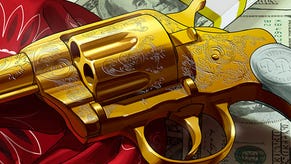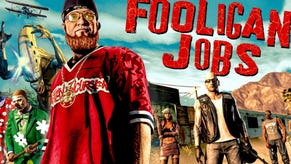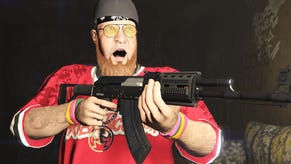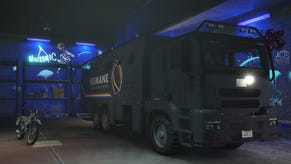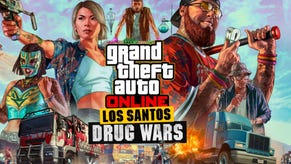The Day That Even Grand Theft Auto Conceded Its Limits
Ten years ago, we learned where gaming's baddest, most daring franchise draws the line: At sex.
This article first appeared on USgamer, a partner publication of VG247. Some content, such as this article, has been migrated to VG247 for posterity after USgamer's closure - but it has not been edited or further vetted by the VG247 team.
Rockstar Games comes by its name honestly; with one of the most successful game franchises ever made under the company's belt, the studio certainly has the clout and substance to justify its rebellious, bad-boy corporate persona. But even Rockstar has to draw the line somewhere, and 10 years ago today we learned exactly where that line is drawn.
The Grand Theft Auto series has always seemed eager to court controversy. From the very beginning, it was a series about bad behavior, breaking the law, and generally being a poor citizen. GTA III became a breakout hit in large part because of its massive, immersive, open-world rendition of New York City made for an extraordinary playground for gamers to fool around in, and in part because of all the sensationalism around emergent gameplay having to do with prostitutes. But when modders restored a hidden, abandoned sex minigame in Grand Theft Auto: San Andreas, Rockstar finally conceded the limits it was willing to push.
Despite its inaccessibility to users without deliberate hacking, the "hot coffee" content in San Andreas ignited a firestorm of controversy and forced the ESRB to re-rate the game as an adults-only title. Rockstar quickly reissued an edited version of the game that removed "hot coffee" once and for all, restoring its original hard M rating.
Critics of the series (and the studio) were quick to declare this a victory, suggesting that their fiery op-eds had worn down Rockstar and that the company had neither the spine nor stomach to deal with media scrutiny. In reality, Rockstar was probably motivated by sheer pragmatism; the AO rating would have made San Andreas ineligible for sale at major retailers like Walmart, Target, and Costco. Bumping it back down to an M rating undoubtedly ensured continued sales of the game — sales that were definitely bolstered by the interest inspired by all that "bad" publicity. Did Rockstar flinch? Maybe... but they raked in hundreds of millions of dollars in doing so. Would that we could all flinch so profitably.


